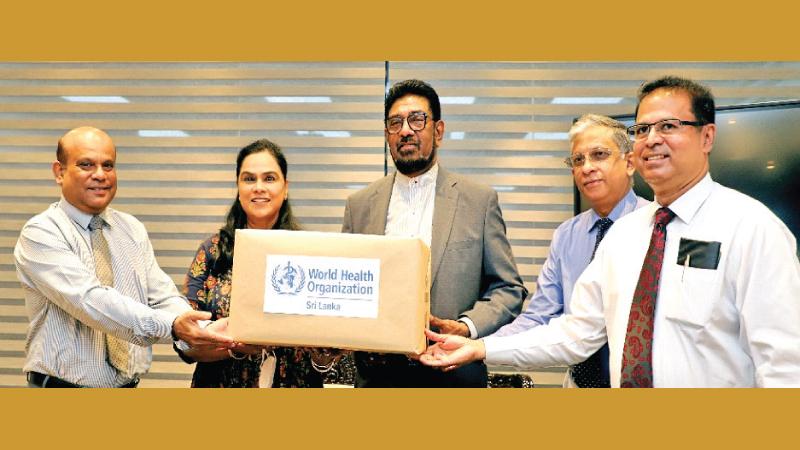
WHO Sri Lanka handed over Real Time Polymerase Chain Reaction (PCR) test kits for monkey pox to Minister Dr. Keheliya Rambukwella on Friday.
The kits may be used for diagnosis of up to 730 monkey pox cases. Strengthening surveillance and laboratory investigations for monkeypox is critical to rapidly identify cases and clusters and ensure timely isolation of cases to prevent further transmission.
WHO shall further support implementation of recommended strategies for disease prevention and control: case finding, contact tracing, infection prevention and control measures, reaching the high-risk communities, clinical management and risk communication.
The multi-country outbreak of monkeypox represents a public health emergency of international concern, the highest level of global public health alert. From January through July 2022, more than 19 000 probable and laboratory confirmed cases of monkeypox have been reported to WHO from at least 78countries across all six WHO regions, including the South-East Asia Region.
Monkeypox can cause a range of signs and symptoms, including fever, rash, and swollen lymph nodes, which can be easily confused with symptoms of other illnesses, such as chickenpox, measles, and bacterial skin infections. In most cases, symptoms subside within a few weeks. However, in some cases – particularly among newborn babies, children and people with underlying immune deficiencies – infection can lead to medical complications and even death. Since January, five deaths from monkey pox have been reported to WHO.
The World Health Organization Regional Director for South-East Asia Dr Poonam Khetrapal SinghIf you think you might have monkey pox, you can protect others by seeking medical advice and isolating from others until you have been evaluated and tested. Anyone who has close contact with someone who is infectious is at risk. As we learn more, additional cases may be identified in the broader community.
Though the risk of monkeypox globally and in the Region is moderate, the potential of further international spread is real. All countries of the Region must therefore strengthen preparedness and response capacities, building on a series of priority actions, while WHO continues to coordinate and support global research and equitable access to key health tools such as vaccines and treatments, based on public health risks and needs.
First, step up surveillance, with a focus on sensitising and training health workers and ensuring access to reliable, affordable and accurate diagnostic tests. Health workers should immediately report suspected cases to local or national public health authorities, collect and ship specimens for laboratory testing, and initiate contact tracing while protecting the human rights, privacy and dignity of affected individuals and their contacts. National IHR focal points should report all probable and confirmed cases to WHO using the minimum data set contained in the WHO Case Report Form
